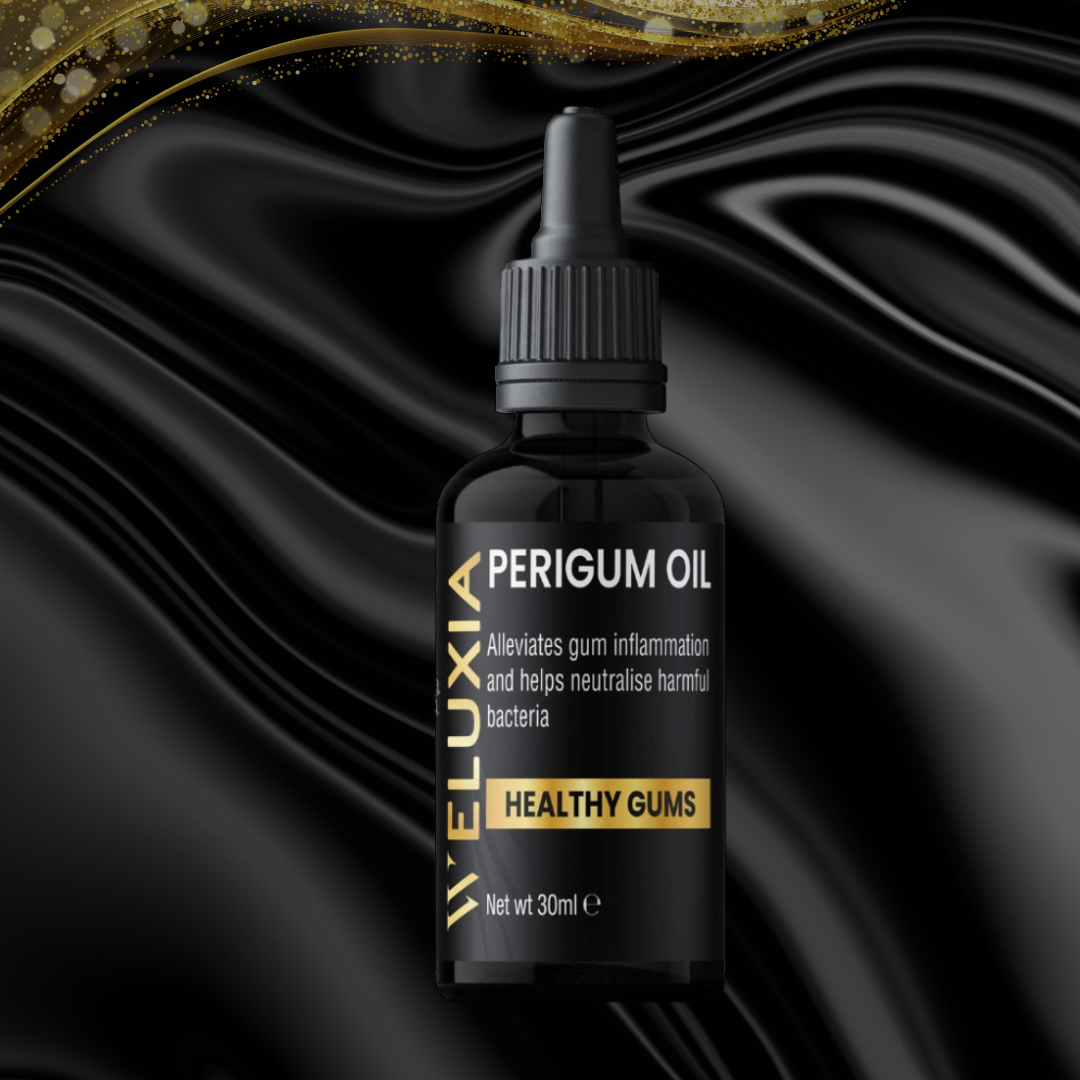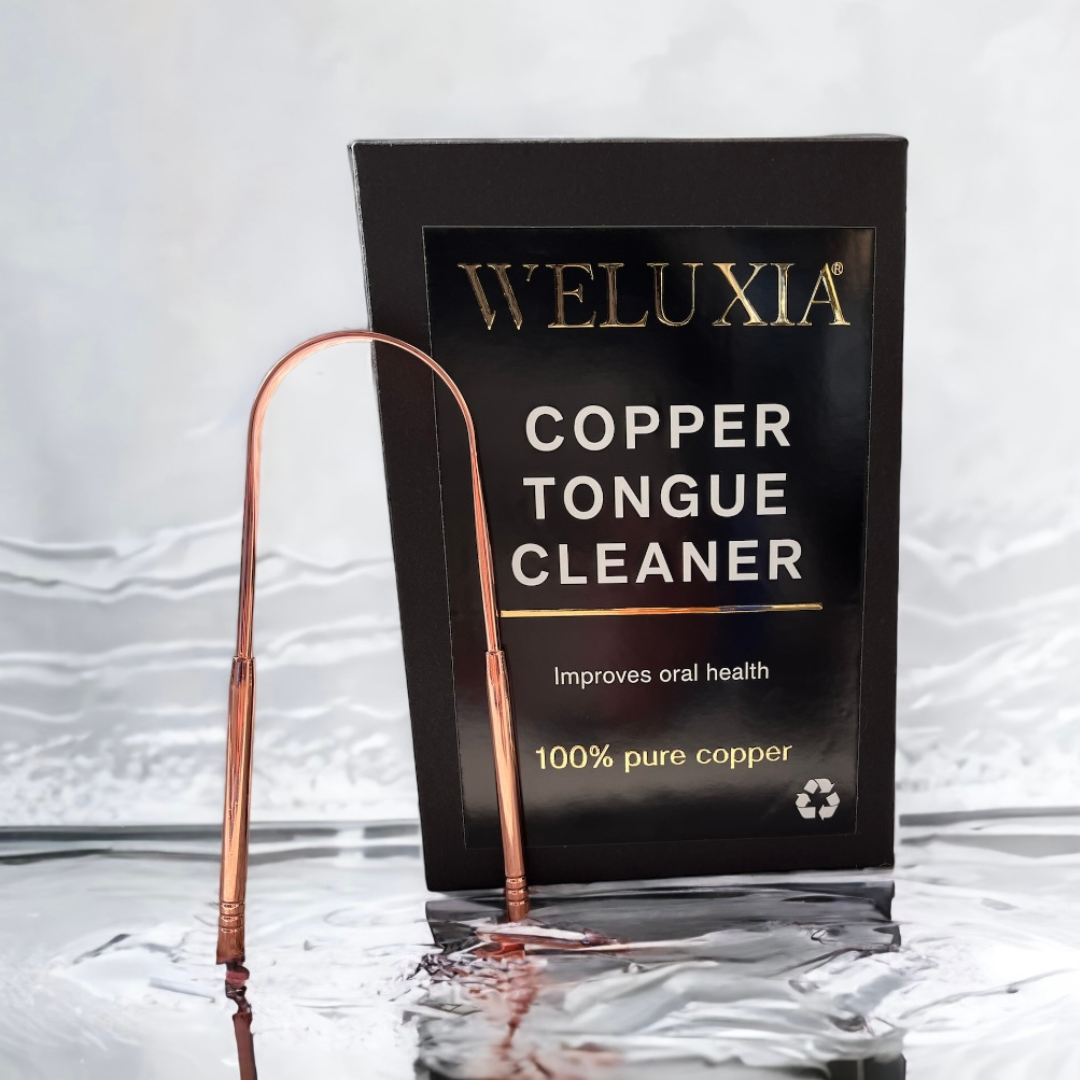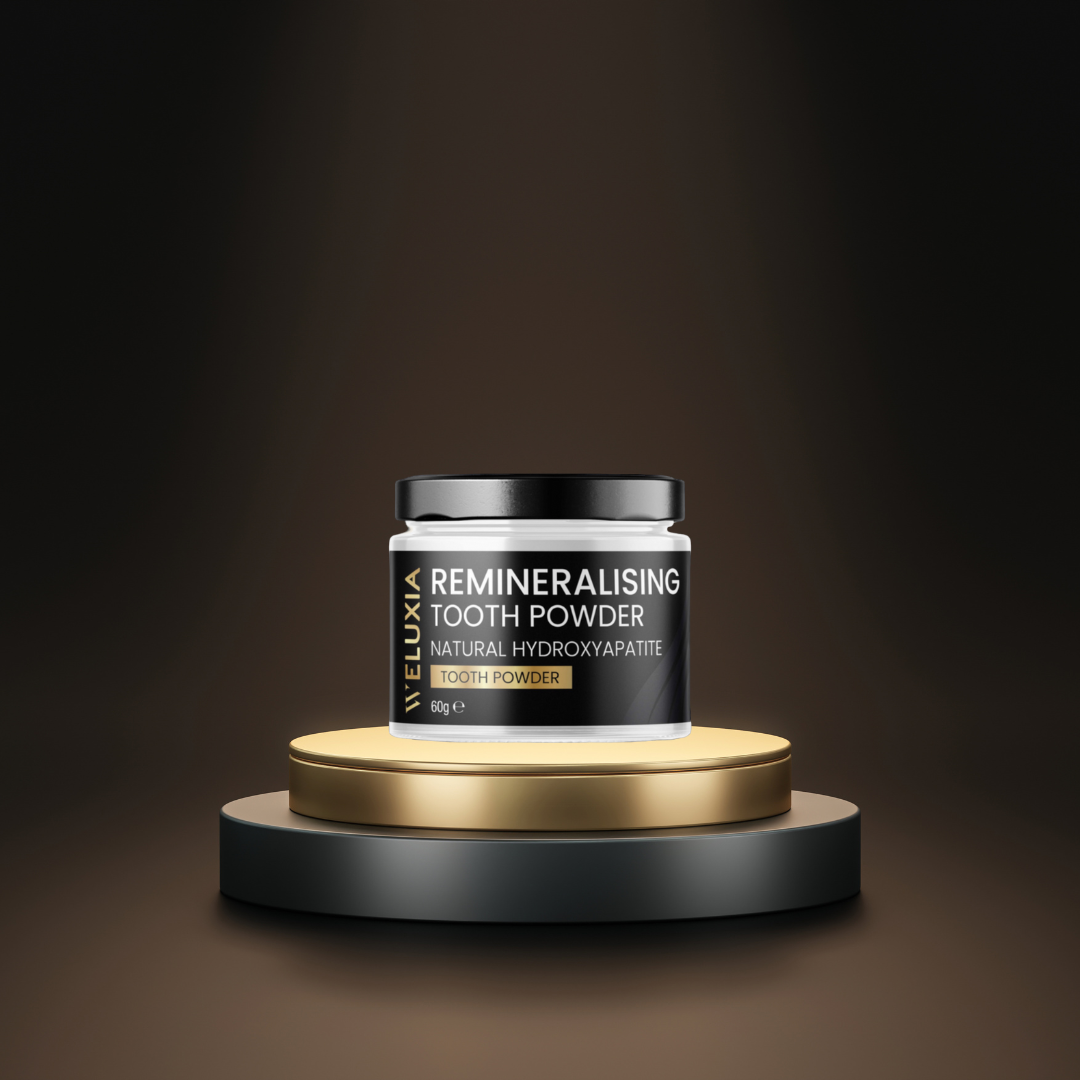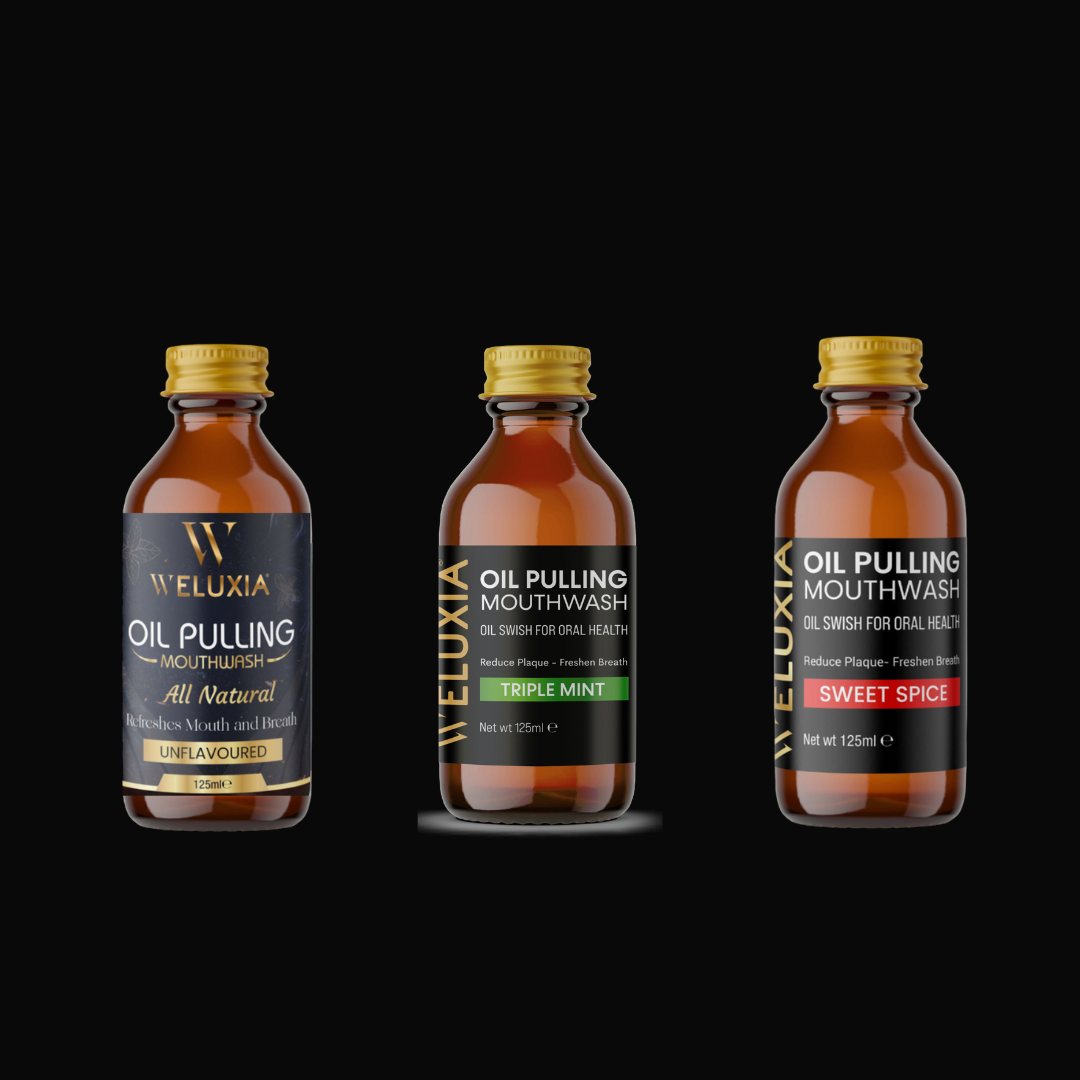Benefits of oil pulling
Did you know a study found that 10 minutes of oil pulling daily can lessen Streptococcus mutans in saliva in 2 weeks? This Indian remedy called oil pulling has been around for ages. It's a great way to care for your mouth, recent studies show.
Oil pulling is about rinsing your mouth with oil, like coconut oil. It's done by swishing the oil around. This process removes harmful bacteria. Coconut oil is often used because it tastes good and helps fight germs. This is thanks to its lauric acid content.1
This method not only lowers Streptococcus mutans, but it may also lessen plaque, gingivitis, and bad breath. Some studies show coconut oil works as well as chlorhexidine mouthwash against Streptococcus mutans.1 This method not only lowers Streptococcus mutans, but it may also lessen plaque, gingivitis, and bad breath. Some studies show coconut oil works as well as chlorhexidine mouthwash against Streptococcus mutans.
What is Oil Pulling?
Oil pulling is an old Indian remedy, dating back thousands of years. People swish oil, often coconut oil, around their mouth. This helps remove bad bacteria. The bacteria mix with the oil and are pulled out of the mouth.
Ancient Indian Folk Remedy
Its origins are from Ayurvedic medicine in India. It's been used for oral health for a long time. Passed down through generations, it's now being used worldwide for keeping teeth and gums healthy.
Swishing Oil Around the Mouth
To do oil pulling, put a tablespoon of oil, often coconut oil, in your mouth. Swish it around slowly for 15-20 minutes. This method helps remove bad bacteria from your mouth's corners and surfaces.
Removes Harmful Bacteria
The main aim is to get rid of bad bacteria. Some studies highlight that using coconut oil for oil pulling cuts down certain bacteria. This might help protect your teeth and gums.
Oil Pulling with Coconut Oil
Coconut oil is a top choice for oil pulling because of its special features. It's full of lauric acid, which is a type of fatty acid proven to fight off microbes3 .This makes coconut oil perfect for swishing in the mouth to get rid of bad bacteria.
Antimicrobial Properties of Lauric Acid
Coconut oil's high lauric acid content works wonders for your mouth. Research shows it can stop certain bacteria that lead to cavities and gum issues Because of this, coconut oil is a great pick for those wanting better oral hygiene through oil pulling.
Pleasant Taste and Fatty Acid Profile
Coconut oil doesn't just help kill germs; it actually tastes good too. Many people enjoy its mild flavour during oil pulling. Plus, its mix of various fats adds extra reasons why it's good for your mouth.
Reduces Harmful Mouth Bacteria
Coconut oil pulling lowers the number of Streptococcus mutans in spit. This bacterium causes plaque and tooth decay. Coconut oil pulling works as well as chlorhexidine mouthwash in reducing S. mutans.
Streptococcus mutans and Plaque Buildup
Less Streptococcus mutans means less plaque and tooth decay. Oil pulling is good at fighting this bacteria. It stops the start of harmful plaque on teeth.
Comparison with Chlorhexidine Mouthwash
Coconut oil pulling is almost as good as chlorhexidine mouthwash against S. mutans. It might be a natural choice over chemical mouthwashes for dealing with these bacteria.
Reduces Plaque and Gingivitis
Trying oil pulling with coconut oil could lower your plaque build-up. Many studies show it cuts down on plaque and eases gum swelling, also known as gingivitis. The antimicrobial and anti-inflammatory properties of coconut oil help with these issues.
Decreases Plaque Accumulation
In 2016, a study with 60 adults revealed that oil pulling with coconut oil for 10 minutes each day was great. It clearly reduced bad bacteria like Streptococcus mutans in spit in just 2 weeks, compared to using water. Also, in 2020, a study with 20 adults showed that virgin coconut oil could lower plaque build up. It was very effective when used for oil pulling. A 2017 study with 40 dental students found the same good results in reducing plaque.
Reduces Gum Inflammation
Using coconut oil for oil pulling can make a big difference by lowering gum swelling. This is especially helpful for people with gingivitis. Research shows that after just one week of oil pulling, people with gingivitis had less plaque. The coconut oil's anti-inflammatory effects must be helping the gums.
Oil pulling mouthwash
Oil pulling is a great, all-natural choice for cleaning your mouth. It's different from typical mouthwashes because it uses coconut oil instead. This means it doesn't include artificial compounds like chlorhexidine. Even so, oil pulling can do just as well job at decreasing bad bacteria. And all without the downsides of harsh chemicals.
Natural Alternative to Chemical Mouthwashes
By engaging in oil pulling, you can reduce the number of harmful bacteria in your mouth. Coconut oil is becoming very famous for this, with studies verifying its effectiveness. It's shown to fight against bad bacteria like Streptococcus mutans, just like real mouthwashes do.
Potential Benefits for Oral Hygiene
Using coconut oil for oil pulling might also ease gum inflammation. This method can greatly decrease the chances of getting gingivitis. It could also help with cutting down bad breath and keeping plaque away from your gums. And it could even lower the risks of gum disease and cavities.
Although standard mouthwashes help with oral health, they can bring about some nasty side effects. These include staining, irritating your mouth tissues, and leading to a dry mouth. Oil pulling, meanwhile, doesn't generally have these negative effects, though a few people might react badly to it. Still, experts in dental care say more research is needed to back up the effectiveness of oil pulling.
Freshens Breath
Oil pulling can freshen breath. It fights against the bacteria causing bad odour. This process removes harmful bacteria from the mouth. It boosts overall oral health by tackling the root of bad breath. Thus, oil pulling makes your breath smell better.
Reduces Bacteria Causing Bad Breath
Many people deal with bad breath issues. Oil pulling fights these issues by reducing bacteria that lead to cavities. Even in a study with 20 children, using oil or a certain mouthwash decreased the bad breath bacteria.
Weluxia Oil Pulling Mouthwash Lasts 24 Hours
Weluxia Oil Pulling Mouthwash fights bad breath for a full day if used correctly. Pair it with the Remineralising Toothpowder , Toothsoap and Toothpaste & Copper Tongue Cleaner for best results.
Improves Overall Oral Health
Using coconut oil for oil pulling decreases plaque in the mouth. For the best results, do oil pulling for 10-15 minutes, a day.
How to Perform Oil Pulling
To start oil pulling, put around 1 tablespoon of coconut oil in your mouth. Then, swish the oil around calmly for 10-15 minutes. After this time, spit out the oil but don't swallow it. Now you can brush your teeth.
Use 1 Tablespoon of Oil
About 1 tablespoon of oil is good for oil pulling. This amount helps cover your whole mouth when you swish.
Swish for 10-15 Minutes
When starting out try 5 minutes, start gradually then increase to 10 minutes. This time lets the oil mix well with your saliva. It's how the oil can remove the bad bacteria effectively.
Spit Out the Oil and Brush Teeth
After swishing , spit the oil out in the sink or a trash can. Don't swallow it because it holds the harmful stuff that was in your mouth. Finally, brush your teeth like you always do to finish oil pulling.
Scientific Evidence and Research on Oil Pulling
Many studies have looked at oil pulling, especially with coconut oil, to see how it affects oral health. They focused on issues like plaque, gingivitis, and levels of bacteria.2
These researches generally agree that oil pulling is good for reducing harmful oral bacteria. It also helps improve gum and dental health.2
Safety and Potential Side Effects of Oil Pulling
Oil pulling is safe as long as you do it right. There is usually no side effects from oil pulling. But, some people might have a sore jaw or headache at first. These problems often go away with time.
While generally safe, be careful not to swallow or breathe in the oil when swishing it around your mouth.
Rarely, swallowing the oil might cause stomach problems. This is according to Ayurvedic medicine. Some studies suggest that taking care of your teeth, like with oil pulling, could be good for your health. This is because oral health can affect your whole body's health.
Conclusion
In conclusion, oil pulling with coconut oil looks promising for mouth care. It might lower harmful bacteria, cut down on plaque, and help against gum disease and bad breath. But, some claims about its benefits lack solid proof. Yet, studies show it could add to your dental care routine. To get the best results, use oil pulling along with regular brushing, flossing, and dental check-ups.
So, why consider oil pulling? It's a simple, affordable way to support your dental health. It might do more good for your mouth. But, we need more studies to be sure about its effects and safety. Always talk to your dentist before trying oil pulling. And the most important things are still to brush and floss well.
In the end, this article shows oil pulling has its benefits. But, it's not the only thing for healthy teeth. Remember, as we learn more, you can decide if oil pulling fits your dental care. Always consider your dentist's advice.
Weluxia Oil Pulling Mouthwash
Weluxia Oil Pulling Mouthwash comes in 3 flavours and is preservative and gluten free. It is blended with special oils to give it a fresh, subtle taste (so you don’t get the bitter taste of unblended coconut oil). Use one tablespoon every day before brushing your teeth. You can use it in the morning . Shop our Mouthwash Collection
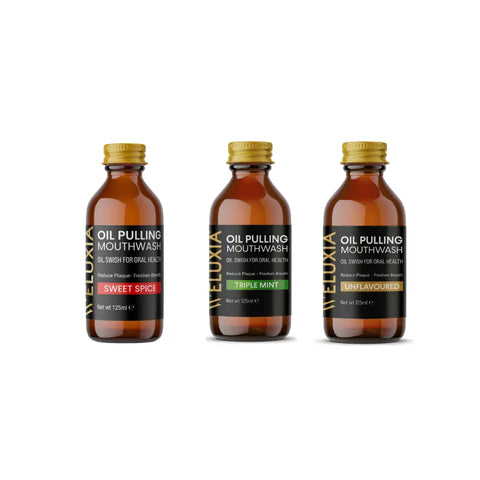
Source Links
- https://www.healthline.com/nutrition/oil-pulling-coconut-oil
- https://www.ncbi.nlm.nih.gov/pmc/articles/PMC5654187/
- https://www.biolase.com/blog/using-coconut-oil-benefit-oral-hygiene/
- https://sinadadental.com/blog/what-oil-pulling-can-do-for-your-oral-health/
- https://www.ncbi.nlm.nih.gov/pmc/articles/PMC4382606/



